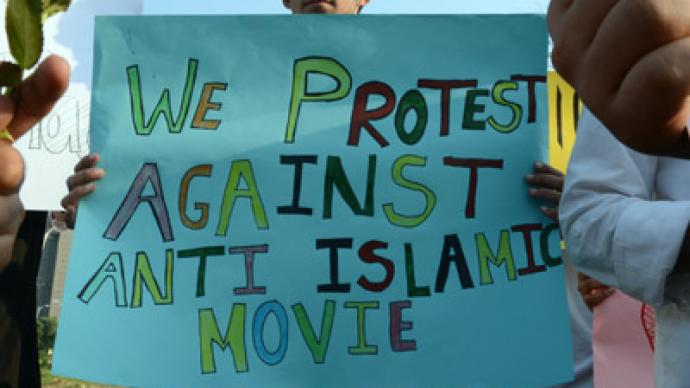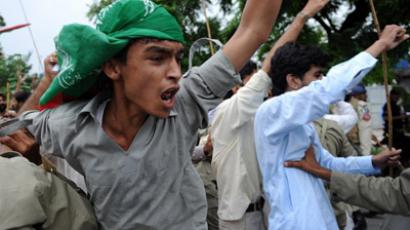Russian Rights activists oppose out-of-court ban on Innocence of Muslims

Russian Human Rights association Agora has addressed the Prosecutor General with a request to stop the practice of blocking access to the infamous anti-Islamic film before there is a court ruling on the subject.
Agora reminded in its letter that neither the Prosecutor General’s Office nor the Federal Service for Control over Communications have the right to demand the blocking of access to information if this information has not been recognized as banned for distribution by a court.Therefore, the rights activists said, “The Prosecutor General’s Office must stop the practice of unfounded and unlawful interpretation of the law, stop following political expediency and rule out the possibility of rights violations by its agents.” Further, the actions aimed to limit the access to the film violated Russia’s international obligations, including the convention on protection of basic human rights and freedoms, the letter read.The association stressed that the address must not be perceived as an attempt to approve of the film or justify its existence. “However, even criminals are not considered criminals before a court conviction comes into legal force,” they added. The letter to the Prosecutor General’s office was prompted by the move by deputy head of the agency, Viktor Grin, who had charged regional prosecutor’s offices with the task of ensuring that providers block access to websites hosting the Innocence of Muslims movie. The Federal Communications Control Service has sent similar requests, the activists claim.News agencies reported that regional prosecutors issued warnings to over 100 internet service providers in 10 Russian regions over hosting of the film. However, both the YouTube and the popular Russian social network Vkontakte (In Contact), which is also used for video sharing, said they so far experienced no problems with channel blocking. Vkontakte also issued a statement saying that it will not block any content if there is no court order regarding it.In one case, YouTube was unavailable for users in the city of Omsk. This prompted bloggers to sound the alarm, saying that Omsk could be just a test and soon YouTube will be banned all over Russia,. However, YouTube was back online in a few hours and providers said that the problems behind the incident were purely technical. Mixed reports also came from the city of Volgograd, where Twitter users said they could not reach YouTube and saw screenshots of “control instance” letters instead, but providers said that though they received the warning messages, no action has been taken so far.Earlier in the week, Russia’s communications minister tweeted that Russia could block access to YouTube over Innocence of Muslims, but only after the new law comes into force on November 1. A short time later the minister corrected himself, saying that he expected the blocking of the film itself, not the YouTube service as a whole. The new law allows the control agencies to block access to sites with hazardous or dangerous information granting the providers to contest this decision in court over a limited period of time. The Prosecutor General’s Office has already addressed the Tverskoy District Court in Moscow with a request to recognize the Innocence of Muslims as extremist material, which will allow law enforcers to ban access to it under a different Russian law – the Law on Extremism. The court accepted the lawsuit and scheduled the first hearing on October 17.













